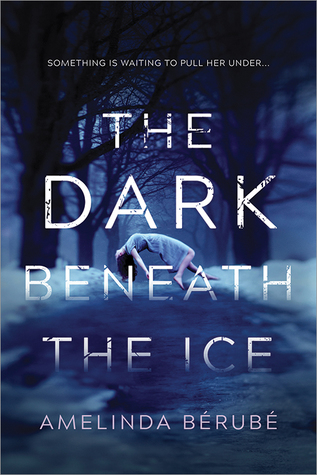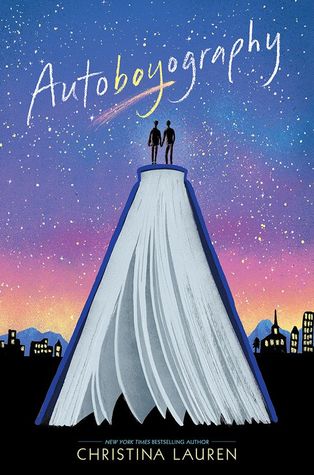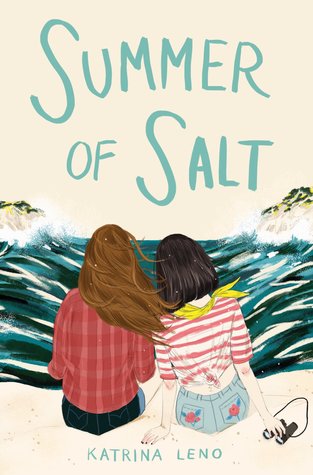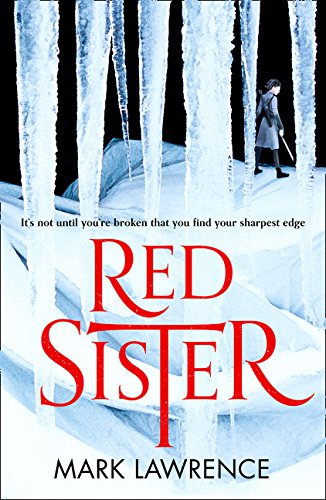
I’ve been sitting on my feelings about this book for about a week now, and I don’t think I made much progress untangling them. I enjoyed reading this book, not because it was a pleasant read, it wasn’t, but because I was so invested in Jude and his well-being. It’s been a while since I read a book with such a compelling, and complicated, protagonist — that means this book did at least one thing right. And being a big fan of character driven narratives, that’s a big one in my book. That doesn’t mean I didn’t have issues with it, because I did, and there’s one thing in particular I’m still trying to wrap my mind around, and I hope some of you who have read this book can help me make sense of it. This review will have spoilers, so it’s best not to keep reading if you plan on reading this book.
When four classmates from a small Massachusetts college move to New York to make their way, they’re broke, adrift, and buoyed only by their friendship and ambition. There is kind, handsome Willem, an aspiring actor; JB, a quick-witted, sometimes cruel Brooklyn-born painter seeking entry to the art world; Malcolm, a frustrated architect at a prominent firm; and withdrawn, brilliant, enigmatic Jude, who serves as their center of gravity.
Over the decades, their relationships deepen and darken, tinged by addiction, success, and pride. Yet their greatest challenge, each comes to realize, is Jude himself, by midlife a terrifyingly talented litigator yet an increasingly broken man, his mind and body scarred by an unspeakable childhood, and haunted by what he fears is a degree of trauma that he’ll not only be unable to overcome—but that will define his life forever.
TW: paedophilia, rape, sex-trafficking, forced prostitution, graphic depictions of self-harm, suicidal ideation , suicide, depression, drug use, drug addiction, domestic violence, physical violence, ableism, medical amputation, semi-graphic descriptions of open wounds (I hope I’m not forgetting anything).
— by Hanya Hanagihara. I actually talked myself into finally reading this book, after having it sit on my shelf for years, by reading the plot summary on wikipedia and spoiling it, it was a way of telling myself I could handle all the hard themes to come. And it worked. This is literary fiction, and more like a character study than anything else, so the plot is really bare bones. You basically follow the lives of four friends from their twenties to their fifties, with the focus being on Jude and his traumatic past as a victim of paedophilia, sex-trafficking and forced child prostitution.
My fears that the sexual abuse would be somehow depicted in a voyeuristic way didn’t materialise, which I’m very glad for. The accounts weren’t graphic, despite all the trigger warnings related to sex crimes this doesn’t feel like a sexually explicit book at all — which I think was the right call when dealing with such delicate subject matter. The focus was often on Jude’s feelings of despair and worthlessness, and how the abuse he suffered when he was a child impacted the rest of his life. They were still hard to read and I often found myself skimming those sections (which weren’t necessarily flashbacks but were peppered through the present-day segments as they related to Jude’s current state).
Jude’s self-harm on the other hand was depicted in a much more graphic way, as were all the recurring leg wounds he developed as a result of a spinal injury he suffered after being run over by one of his abusers when he was 15. His emotional lows were really low and harrowing, and I think it’s best if people going through depression or struggling with their own suicidal thoughts avoid this book. Jude also struggles a lot with internalised ableism, it’s a big part of his character, and he never quite overcomes it. Although things get much better towards the end of the book.
I know I’m painting a really bleak picture, but there were moments of real happiness in Jude’s life and he had a circle of people around him who loved and respected him, that stopped this book from feeling gratuitously miserable to me, and more like an account of a very hard life, sometimes excruciating, that was nevertheless still worth living. That he commits suicide after the death of the love of his life seems more like a manifestation of the profound grief of someone who hates loneliness, and who can’t imagine life after losing the man he saw as his soulmate. It felt removed from his past depression and from his trauma. In a way, grief killed him, and that happens to people who didn’t go through what Jude did as a child too.
This isn’t a happy book, and no one gets a happy ending. I was okay with that, mostly because I knew not to expect one, and to appreciate and treasure all the happiness Jude did find, which was something he did as well.
However, Yanagihara made some puzzling narrative decisions that threw me out of the novel and made me wonder what was she trying to get at.
Let’s start with the easy stuff: this book isn’t as smart as it pretends to be. People call this a modern classic, and while the writing is good (not beautiful, which would be too much considering the topics, nor overly dry), to the point and poignant is how I would describe it, the author tells instead of showing almost everything that would require more than a superficial amount of research.
In one of the few moments she actually shows a character doing their job, and behaving in a way a highly respected professional should, she fumbles her hand. Harold, Jude’s adoptive father, and a highly respected law professor is giving a lecture (in some or other Ivy, I’m not american I don’t remember their names), he gives this speech which is supposed to sound deep and meaningful but it’s really just a run through of the social contract — which of course wows and amazes his students. The problem is the social contract is one of the most basic philosophy concepts of all, and something all portuguese students learn in 10th grade philosophy class (which is mandatory). What this great law professor said amounts to “we live in a society, and we give up certain freedoms for the privilege” — yeah no shit.
I have no idea why Yanagihara thought this sounded smart, specially since she didn’t do anything with the concept. She could have used it to tie in with the idea that Jude feels like he doesn’t fit in, that he has to behave a certain way to be accepted and loved. This could have been foreshadowing, or called back to, later in the book, but no, it only serves to awake in Jude a passion for the law.
This isn’t a recurring problem though, because like I said Yanagihara tells almost everything, and we are shown very little: We are told Jude is an amazing fierce lawyer who everyone dreads meeting in court (we don’t see a single of his trials), we are told Willem is an extraordinary actor (we don’t see him act, outside of a play where he decided his character would have the nervous tic of peeling back wallpaper — which is probably the single most pretentious thing I’ve read in my life), Malcom is an amazing architect (he doesn’t really do much either, but at least we see him talk over his plans for Jude’s house, which at least convinced me he was competent) and JB is an amazing artist, (we are told plenty about how amazing his paintings are, shown very little of him actually painting them). JB was particularly annoying to me, because while I realise he was supposed to come off as pretentious and abrasive, all the descriptions of his art sounded so bland and uninspired I found it hard to believe he was ever critically acclaimed — either that or the NY art scene has lower standards than I thought.
I would be way more annoyed with the telling instead of showing if this was a fantasy book or a sci-fi book, and not the literary character study it is. And while Yanagihara was great at conveying emotions and mental states she was less great at convincing me these characters had real lives beyond their emotional turmoil. That’s where showing them being good at their jobs instead of merely telling the reader they were, would have come in handy — it would have fleshed out their character, and helped them not to be so insufferably pretentious at times. Even Jude suffered from this.
My biggest issue with this book comes with something that happens after Jude and Willem get together, though. Jude is very secretive about his sexual abuse and hasn’t told any of his friends or adoptive parents. Jude is also very sex-repulsed, but he wants a romantic relationship. After Willem confesses his feelings he and Jude enter into one, and Jude is very happy but he tells Willem he isn’t ready for sex and that they’ll have to wait, Willem is fine with this. He’s less fine with it (???) when it’s been more than six months and nothing has happened yet, but still he waits. They finally have sex, Jude hoped it would be different with someone he truly loves, but it isn’t, he still hates sex as much as always. They then proceed to have sex for 18 months, a period during which Jude’s cutting gets worse than ever for obvious reasons. Jude eventually tells Willem the truth, they stop having sex, but their relationship continues as usual and things are fine after that.
But holy shit, I can’t wrap my mind around how Willem, who isn’t described as an idiot, didn’t realise that Jude’s mental state was deteriorating because they were having sex. Everything was not perfect, but going well, and Jude was cutting a lot less, and then they start having sex and Jude gets worse — I WONDER WHAT COULD HAVE CAUSED THAT! At one point a few weeks after they start having sex Willem asks Jude if he enjoys sex, Jude of course lies and says yes (because he feared the relationship would end if he said no), and he goes through the motions of pretending to enjoy it and even initiates it sometimes, to better convince Willem he likes having sex with him. But again, Willem isn’t an idiot, he knows of Jude’s past relationship that ended with him being a victim of pretty gruesome domestic violence, and he has at least an inkling that Jude’s past trauma might have something to do with sexual abuse, so what is stopping him from putting two and two together?
That’s one of Yanagihara’s most puzzling writing decisions in my opinion, I really don’t understand what she was trying to say with this? That even the best of men (and Willem is great to Jude in every way, and clearly loves him), will put their sexual needs before the well-being of their partner? It just seems to go against Willem’s character who has always been protective of Jude, and put him before his own career and well-being.
This ended up being one of the most upsetting parts of the novel for me, the idea that to find happiness Jude would have to endure even more unwanted sexual attention, this time from the man he loves is sickening. Was this supposed to be a commentary on our sex-obsessed society? Because there’s nothing wrong with consensual sex. And while it’s natural that Willem would be sexually attracted to Jude it’s incongruous that he would be wilfully blind to his discomfort.
I could write more about this particular topic, but this review is already overwhelmingly long as it is. And honestly my issue just boils down to the fact that I don’t understand what Yanagihara was trying to say, I don’t think she’s a bad writer so she must have been trying to say something. It’s also worth noting that she’s never heard of the words bisexual or asexual in her life. Willem is described as straight, even though he’s had sex with men and then falls in love with Jude, which is puzzling to say the least. Then, at one point Willem remembers him and their friends discussing Jude and wondering if he might be asexual (he clearly is), Willem is sure he isn’t, but he has the time to wonder if that isn’t wishful thinking on his part (it is). Again: what. does. that. mean.
How am I supposed to feel about Willem? About men in general? I think Yanagihara was trying to make some sort of statement, but I’m not sure she succeeded. A Little Life is a character study, as I said, and maybe it isn’t meant to say anything about society as a whole, just about this cast of characters and people like them. I’m not sure. And that’s why ultimately I still have no idea how to rate this book. Maybe the point is to be left wondering about human nature, and how cruel and alienating loneliness is, and how different people find different ways to deal with it. Maybe that’s it. I still don’t know. And I think this is one of those books where everyone who reads it is going to come away from it with something different.
Ultimately, I would only recommend this book to someone who knows they can handle the subject matter, and who wants to figure out for themselves what the point of it all is. Maybe you’ll do a better job than me. I can’t say I regret reading it, I love Jude as a character and all his moments of happiness were precious and felt personal to me in a way that I’ll remember for a long time. I just wish I didn’t have such conflicting thoughts about the rest of the book.












 I don’t know how to describe this book without just gushing meaningless praise, after meaningless praise. It was such an enjoyable, engaging, fun read, with plenty of humour that somehow lulled me into a false sense of security and then ripped my heart out with the ending (it was the good kind of pain).
I don’t know how to describe this book without just gushing meaningless praise, after meaningless praise. It was such an enjoyable, engaging, fun read, with plenty of humour that somehow lulled me into a false sense of security and then ripped my heart out with the ending (it was the good kind of pain). Tam Hashford is tired of working at her local pub, slinging drinks for world-famous mercenaries and listening to the bards sing of adventure and glory in the world beyond her sleepy hometown.
Tam Hashford is tired of working at her local pub, slinging drinks for world-famous mercenaries and listening to the bards sing of adventure and glory in the world beyond her sleepy hometown.






 Murder, but many in the Red Church ministry think she’s far from earned it. Plying her bloody trade in a backwater of the Republic, she’s no closer to ending Consul Scaeva and Cardinal Duomo, or avenging her familia. And after a deadly confrontation with an old enemy, Mia begins to suspect the motives of the Red Church itself.
Murder, but many in the Red Church ministry think she’s far from earned it. Plying her bloody trade in a backwater of the Republic, she’s no closer to ending Consul Scaeva and Cardinal Duomo, or avenging her familia. And after a deadly confrontation with an old enemy, Mia begins to suspect the motives of the Red Church itself.


